Seminar Cancelled — October 19, 2023: IRES Faculty Seminar with Tabitha Robin (speaker is sick)
This seminar is cancelled. The speaker is sick. Sorry for the inconvenience.
Talk summary:
Historically and contemporarily, colonial policies and prejudices have deeply affected Indigenous food systems and thus Indigenous bodies. For Cree peoples in Manitoba, these policies include the criminalization of practicing traditional medicines, residential schools and land dispossession in the name of development. However, despite the challenges and interruptions to food and cultural systems, Cree Elders understand food to be sacred, and moreover, a healer. This qualitative study, grounded in Indigenous research methodologies, sought to investigate the role of food in Cree culture, through understanding how Elders incorporate food into their helping and healing practices. Using metaphor to make meaning of the Elder stories, this research articulates the role of food in Cree culture: through feeding oneself, one’s ancestors, and one’s community. The Elders revealed the rich depth of Cree food knowledges that underlie Cree culture, from star stories, language, and grieving ceremonies to knowledge of plant and food medicines. This presentation is an exploration of Cree guidance for revitalizing and rebuilding Cree food systems as part of a larger Indigenous food sovereignty framework.
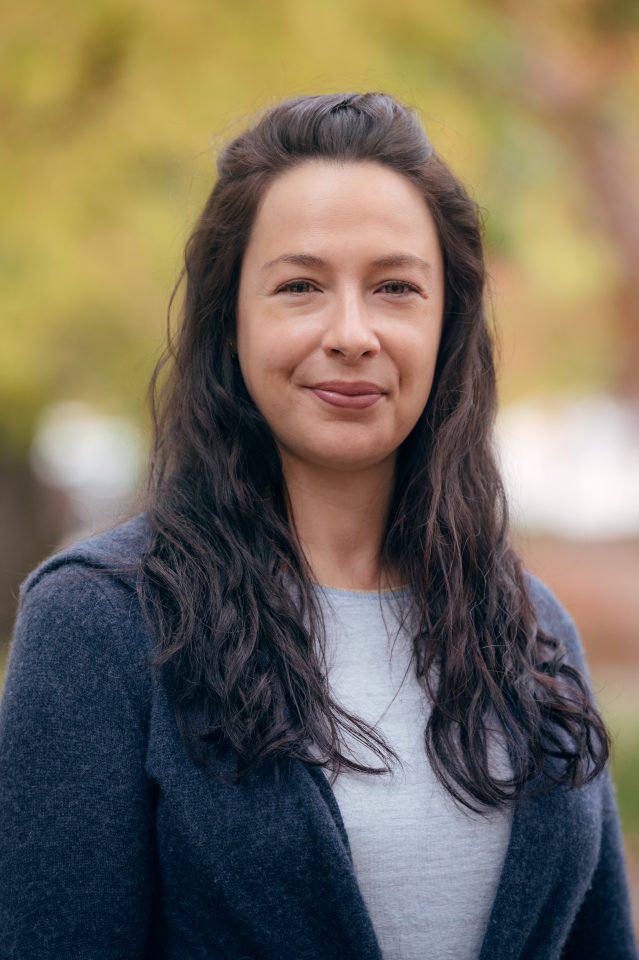
Faculty of Land and Food Systems
Bio:
Tabitha Robin is a mixed ancestry Metis and Cree researcher, educator, and writer. She is an Assistant Professor in the Faculty of Land and Food Systems at the University of British Columbia. She spends much of her time learning about traditional Cree food practices.
February 2, 2023: IRES Professional Development Seminar Series with Nivretta Thatra
Science Communication Skills: Lay Abstracts and Digital Profiles
Time: 12:30pm to 1:20pm
Location: Beaty Museum Theatre (2212 Main Mall)
Click here to view video.
Talk summary:
Help improve the reach of your research and your skills! Communicating your work to a wider audience can help inform policy and society, and gets you hired. Join Nivi Thatra for this free workshop covering how to
1- write a lay abstract/summary of your research, which is a requirement for all UBC grad students when submitting your dissertation and,
2- getting starting with or refining your professional online presence.
Please bring a research topic, paper, or online profile (IRES profile, Twitter, LinkedIn, and/or ORCID iD, ResearcherID and/or Google Scholar profile) on which to practice your newfound skills. This hour is for YOU… use it to check off part of your dissertation, prep for a presentation, or update your professional profiles.
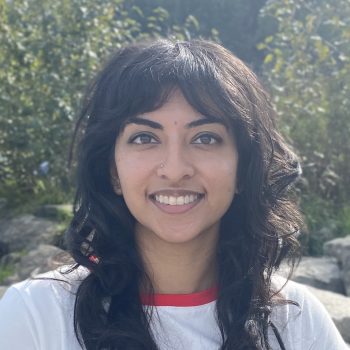
Bio:
Nivi is a communicator with a scientific sense of curiosity. After 10 years learning about and working in neuroscience, Nivi now broadens the reach of academic research at IRES by writing, posting, and sharing the department’s interdisciplinary efforts towards a more sustainable future.
October 12, 2023: IRES Student Seminar with Giulia Belotti and Brian Wang
1. Understanding debates over urban development projects: navigating sustainability, affordability, and livability issues in Vancouver’s Broadway Plan
2. Lost in Transition – Dissolved Carbon Evolution along a Pacific Maritime Headwater Stream Network
Location: Beaty Museum Allan Yap Theatre (Basement, 2212 Main Mall) Please check in at the Admissions Desk first before going to the Theatre.
No food or drinks allowed in the Theatre.
View video here
Talk summary:
Transit-oriented development (TOD) is increasingly recognized as a promising approach to reduce GHG emissions, being transportation a major emitter in urban areas. However, densification and TOD are subjects of intense debate and controversy. This research sheds light on urban residents’ perceptions of transit-oriented development, focusing on the Broadway Plan, a transit-oriented initiative recently approved by the City of Vancouver, as a case study. Through the analysis of public hearings as well as semi-structured interviews, patterns in the perceptions of residents, community groups, and experts towards transit-oriented development were identified. The study reveals that people’s lived experiences significantly shape their attitudes towards development, influencing their vision of an ideal city and the policy direction they believe local governments should take. Understanding these diverse perspectives provides valuable insights for shaping future transit-oriented development policies that consider the needs of both present and future residents.
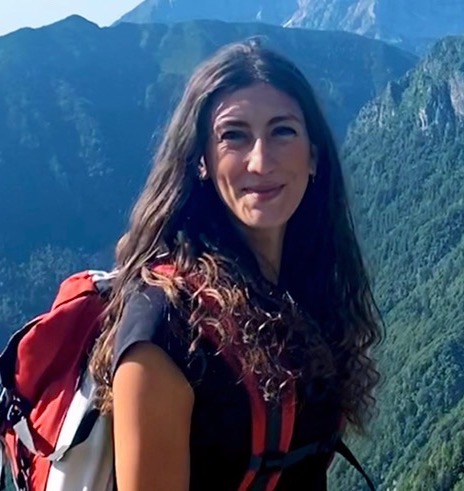
Bio:
Giulia is a master’s student at the Institute for Resources, Environment, and Sustainability, supervised by Dr. Milind Kandlikar. She completed her undergraduate studies at the University of Trento in Political Science and International Relations. Giulia is interested in the social and political aspects of sustainability transitions and her master’s thesis explores the housing and climate crisis nexus, investigating urban resident’s perceptions of transit-oriented development projects. Giulia is also involved in a community-based, participatory research project exploring the impact of extreme heat on precariously housed individuals in Metro Vancouver. While at UBC, she has completed two sustainability internships: with Fraser Basin Council and CityHive.
Talk summary:
The latest global estimate of CO2 emissions from freshwater is similar in magnitude to the annual terrestrial carbon sink. This freshwater emissions estimate included large rivers and lakes, but headwater streams remained poorly characterized. This research sought to quantify the carbon transported, processed, and emitted in a headwater stream located 50 km northeast of Vancouver, BC.
The south coast of British Columbia includes unique ecosystems where highly productive rainforests sit on steep mountainous slopes. As the small stream passes through pools, riffles and waterfalls, turbulence drives dissolved CO2 into the atmosphere, akin to a soda going flat after shaking. Automated sensors were deployed to capture this process and showed at least 40% of transported CO2 is lost within 3.3km downstream of a lake, equivalent to a quarter of the lake’s emission. This implies a potential underestimation of headwater emission from our current global evasion estimates.
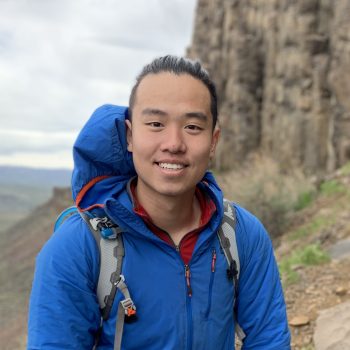
Brian Wang, IRES MSc Student
Bio:
Brian is a MSc student in the UBC Ecohydrology Lab supervised by Dr. Mark Johnson. He is interested in understanding local scale carbon processes to determine if these fluxes scale along with the accelerating hydrological cycle. Additional interest in environmental instrumentation having worked with lab-made low cost sensors to high precision gas analyzers.
Brian graduated from UBC with a BSc in Environmental Sciences specializing in atmospheric science and hydrology. During this time, he was a part of various groups assisting in GHG characterization from agricultural fields to glaciers. As a passion project, he compared the effectiveness of machine learning techniques in forcing energy balance closure.
Professors call for more research into climate-change related threats to civilization
An opinion piece published today in the Proceedings of the National Academic of Sciences, a peer-reviewed journal of the National Academy of Sciences, urgently calls for more research into the specific pathways by which civilization could potentially collapse due to climate change.
“Scientists have warned that climate change threatens the habitability of large regions of the Earth and even civilization itself, but surprisingly little research exists about how collapse could happen and what can be done to prevent it,” says Dr. Daniel Steel, Faculty Associate at IRES and Associate Professor in the School of Population and Public Health.
“A better understanding of the risks of collapse is essential for climate ethics and policy.”
In the article, Dr. Steel and his colleagues, Dr. C. Tyler DesRoches with Arizona State University’s School of Sustainability and Dr. Kian Mintz-Woo from University College Cork, define civilization collapse as the loss of societal capacity to maintain essential governance functions, especially maintaining security, the rule of law, and the provision of basic necessities such as food and water.
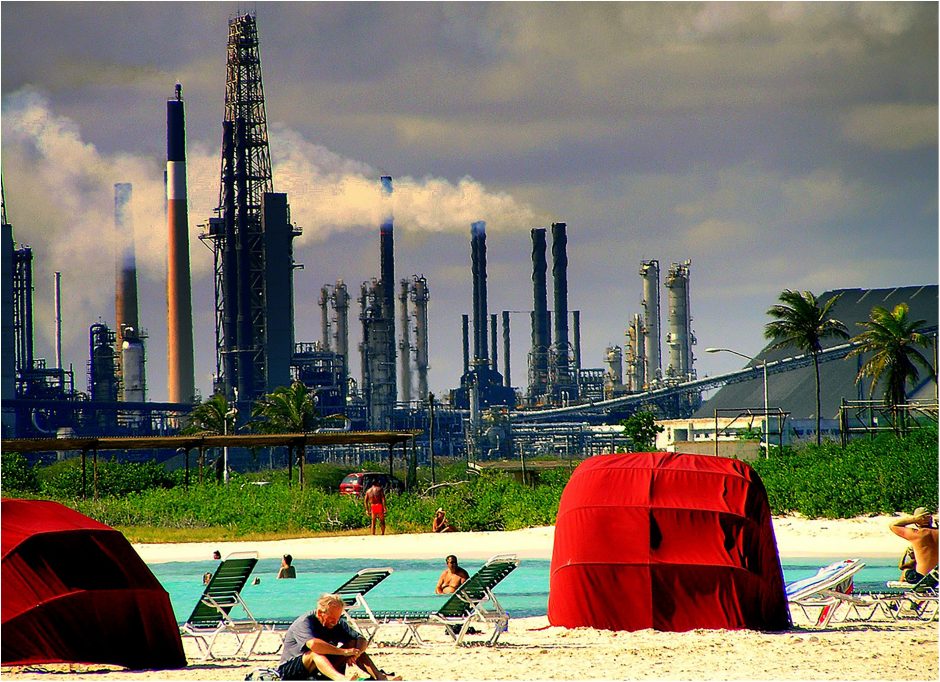
The co-authors consider three civilization collapse scenarios:
- localized collapse of specific, vulnerable locations;
- the collapse of some urban and national areas while the remaining ones experience detrimental climate-related effects such as food and water scarcity;
- global collapse where urban areas around the world are abandoned, nations are no more, and global population falls.
It is not only the direct effects of climate change – such as drought, flooding, and extreme heat – that could create collapse risks, but also less-studied mechanisms.
As Dr. Steel and his co-authors explain, climate change may also have indirect effects on systems like trade and international cooperation, which might in turn lead to political conflict, dysfunction, and war. The authors also state that these effects may lessen civilizations’ adaptability which would leave them vulnerable to other shocks, like pandemics.
“The danger climate change poses to civilization shouldn’t just be left for journalists, philosophers, and filmmakers to ponder. Scientists have a responsibility to investigate this, too,” said Dr. Steel.
October 5, 2023: IRES Faculty Seminar with Rachel Scholes
Emerging contaminants in road runoff and removal in green infrastructure systems
Time: 12:30pm to 1:20pm
Location: Beaty Museum Allan Yap Theatre (Basement, 2212 Main Mall) Please check in at the Admissions Desk first before going to the Theatre.
No food or drinks allowed in the Theatre.
View Video Here
Talk summary:
Freshwater and coastal ecosystems near urban areas are subject to multiple stressors, including the impacts of pollution. In particular, chemicals used in consumer products and industrial practices can negatively impact aquatic ecosystems when they are washed down the drains in our homes and workplaces, and when rain carries them from outdoor surfaces into storm drains and then into receiving waters. Of increasing concern are contaminants found in road runoff, including the tire rubber byproduct known as 6PPD-quinone, which is acutely toxic to coho salmon. This presentation will focus on 6PPD-quinone fate in urban stormwater, and the potential for green infrastructure systems to mitigate the impacts of toxic road runoff contaminants.

UBC Environmental Engineering
Bio:
Dr. Rachel Scholes is an Assistant Professor of Environmental Engineering at the University of British Columbia. Her research focuses on emerging contaminants in water, with an emphasis on nature-based treatment systems. She earned an M.S. and Ph.D. in Environmental Engineering from the University of California, Berkeley, and a B.S. in Chemical Engineering from Northwestern University. Prior to joining UBC, she conducted postdoctoral research at UC Berkeley and the United States Department of Agriculture’s Bioproducts Research Unit, where she focused on green chemistry approaches to mitigate emerging environmental contaminants.
October 13, 2022: IRES Faculty Seminar with Tim Rodgers
A Practical Guide to Chemicals Fate in Urban Areas
Time: 12:30pm to 1:20pm
Location: Beaty Museum Theatre (2212 Main Mall)
View Video here.
Talk summary:
Cities are currently home to the majority of the world’s population and to over 80% of Canadians, with this proportion expected to grow. This city-led growth in population and economic activities is accompanied by complex, interconnected environmental risks. One such risk is exposure to hazardous chemicals—residents of today’s cities are exposed to thousands of chemicals through the food they eat, the air they breathe, and the water they drink. Cities also export many of these chemicals downwind through the air and downstream through water, harming communities and ecosystems. In this talk, I will describe how the movement of chemicals through the urban environment is affected by the design of our built-environments, and how increased urbanization can mobilize many contaminants from air to water, with serious consequences for human and environmental exposure. I will also discuss the role of stormwater green infrastructure in ameliorating these exposures. Overall, improving our understanding of chemical behavior between and within cities could help us build better happier, healthier, and more sustainable cities and communities.
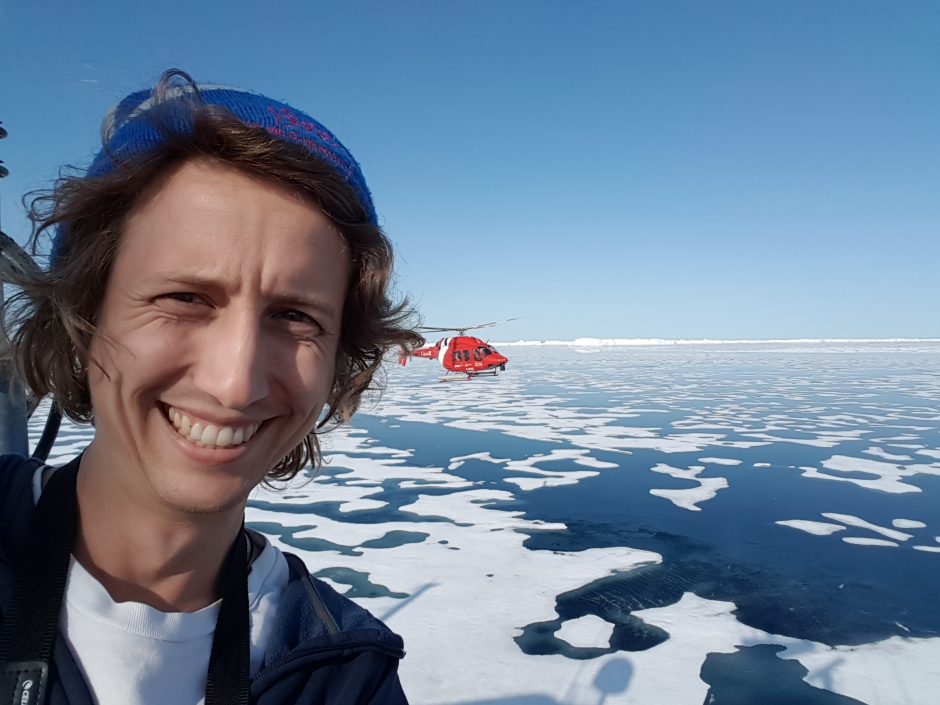
Bio:
I am a Postdoctoral Fellow in IRES here at UBC working with Prof. Amanda Giang. My research looks at how we can use the ways that chemicals move through different environments to inform the design of policy and engineered systems to reduce chemicals impacts on people and ecosystems. My current projects include modeling the emissions, transport and fate of organophosphate esters (OPEs) from global megacities; and assessing how stormwater green infrastructure systems can protect salmon from 6PPD-quinone, a compound found in urban runoff.